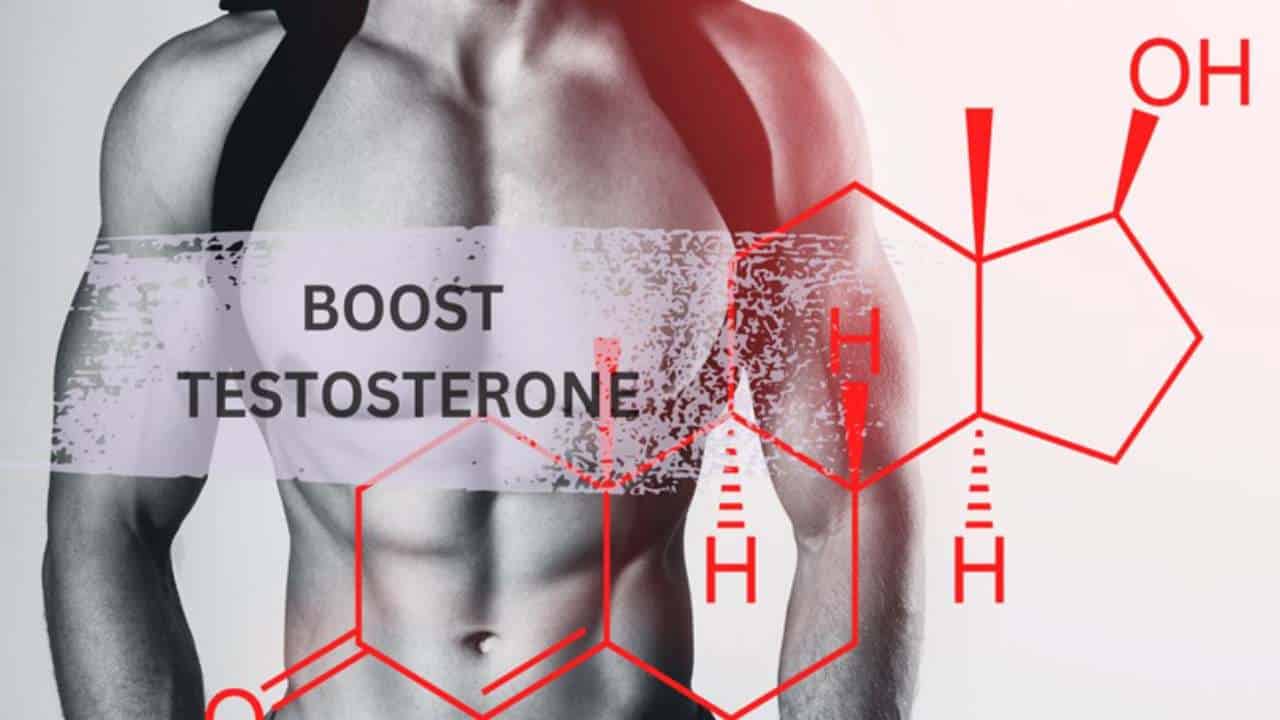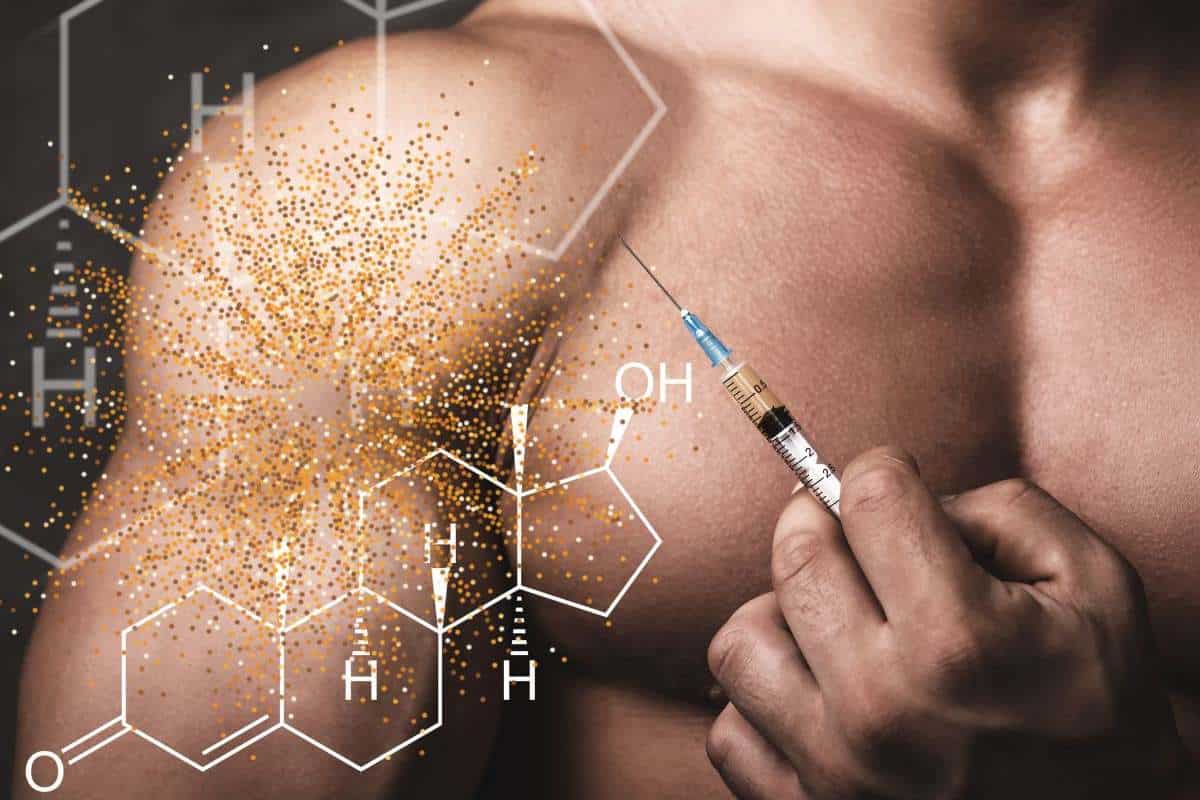Enhance Your Vitality with Testosterone
In the pursuit of peak health and vitality, one hormone plays a leading role – testosterone, the power of vitality. Traditionally linked to masculinity, testosterone is a pivotal factor in an array of bodily functions, extending beyond mere muscle development and distinct characteristics.
This all-inclusive guide delves deep into the realm of testosterone, unraveling its significance, delving into methods to organically heighten levels, and addressing prevalent inquiries.
Deciphering the Essence of Testosterone
Testosterone, the hormone famously linked with male attributes, assumes a critical role in both male and female anatomies. This androgen hormone bears responsibility for regulating a spectrum of functions, spanning from bone density and muscle mass to emotional disposition and cognitive capabilities.
It is primarily produced in the testicles of males and ovaries of females, with smaller quantities originating from the adrenal glands. The influence of testosterone extends across numerous facets of health and overall well-being.
The Vital Roles of Testosterone
Testosterone orchestrates an array of vital functions, which include:
Muscle Growth and Strength: Testosterone stimulates protein synthesis, the fundamental process for muscle growth, thereby augmenting strength and endurance.
Bone Density: This hormone contributes to sustaining bone mineral density, crucial for skeletal health and averting conditions such as osteoporosis.
Cognitive Abilities: Testosterone actively participates in cognitive functions, including memory retention, concentration, and spatial awareness.
Mood Regulation: It serves a role in mood management, with low levels potentially leading to mood fluctuations and irritability.
Libido and Sexual Health: Testosterone emerges as a pivotal factor in upholding a robust libido and sexual function in individuals of both genders.
Navigating Hormonal Equilibrium
While the natural decline of testosterone accompanies the passage of time, numerous lifestyle modifications and practices can contribute to maintaining optimal levels. Assimilating these strategies into your routine holds the potential to invigorate the power of vitality and overall well-being.
Testosterone Boosting Foods: Power of Vitality
While there are claims about certain foods potentially boosting testosterone levels, it’s important to note that the impact of food on testosterone levels is generally modest and can vary from person to person.
Testosterone is primarily influenced by genetics, lifestyle factors, and medical conditions. However, some foods may have nutrients that could support overall hormonal health. Here are some foods that are often suggested to support testosterone levels:
Lean Proteins: Foods like chicken, turkey, lean beef, and fish provide high-quality protein and amino acids that are essential for hormone production.
Eggs: Egg yolks contain cholesterol, which is a precursor to testosterone production. However, moderation is key as excessive cholesterol intake can have negative health effects.
Dry Fruits and other seeds: Dry fruits like walnuts, almonds, sunflower seeds, and pumpkin seeds are rich in good fats, which are important for testosterone production.
Healthy Fats: Olive oil, mustard oil, avocados, and coconut oil are good sources of HDL fats that can support testosterone production.
Cruciferous Vegetables: Broccoli, cauliflower, cabbage, and Brussels sprouts contain indole-3-carbinol, which may help lower estrogen levels, potentially leading to a more favorable testosterone-to-estrogen ratio.
Zinc-Rich Foods: Oysters, lean meats, poultry, beans, and nuts are good sources of zinc, a mineral that is linked to testosterone production.
Vitamin D: Fatty fish (salmon, mackerel), fortified dairy products, and exposure to sunlight can help increase vitamin D levels, which are associated with healthy testosterone levels.
Pomegranates: Some studies found that pomegranate juice may have a healthier impact on testosterone levels and overall prostate health because it contains Polyphenols, other flavonoids, vitamins, and antioxidants.
Garlic: Garlic contains allicin, a compound that may help lower cortisol levels and support healthy testosterone levels.
Leafy Greens: Spinach, kale, arugula, and Swiss chard provide a variety of nutrients that support overall health, including hormone balance.
Best Testosterone Boosting Techniques for Power of Vitality:
Engage in Regular Physical Activity
Incorporating frequent physical activity, particularly strength training and high-intensity interval training (HIIT), can foster a robust surge in testosterone levels. Physical exertion not only sparks hormone production but also bolsters insulin sensitivity, a key element in sustaining hormonal harmony.
Prioritize Restorative Sleep
Adequate and restful sleep stands as a cornerstone of hormonal health. Aiming for 7-8 hours of quality sleep each night nurtures testosterone production and overall power of vitality as its effect is manifold.
Embrace a Well-Balanced Diet
Specific nutrients bear immense influence over testosterone production. Cultivate a diet rich in zinc sources (like lean meats, nuts, and seeds), vitamin D (found in fatty fish and egg yolks), and healthy fats (abundant in avocados and olive oil) to foster a harmonious hormonal milieu.
Skillful Stress Management
Persistent stress can trigger elevated cortisol levels, potentially sabotaging testosterone production. Integrating stress-relieving practices such as meditation, deep breathing, and yoga can help mitigate cortisol impact.
Bask in Sunlight
Sunlight exposure acts as a catalyst for elevating vitamin D levels, intimately tied to testosterone production. Safely absorbing sunlight, especially during morning hours, aids in sustaining optimal testosterone levels.
Uphold a Healthy Body Weight
Striving for a healthy weight significantly contributes to hormonal equilibrium. Excessive body fat particularly concentrated around the abdomen, can precipitate heightened estrogen levels, which in turn can disrupt testosterone balance.
Common Questions About Testosterone
Q. What signs indicate low testosterone levels?
Low testosterone can manifest as fatigue, decreased muscle mass, waning libido, mood swings, and difficulties in concentration.
Q. Can women benefit from optimizing testosterone levels?
Certainly, women also necessitate testosterone for diverse bodily functions. However, meticulous attention is required to sustain a delicate hormonal equilibrium.
Q. Are testosterone supplements efficacious?
Exercise caution and seek medical supervision when considering testosterone supplementation. Natural approaches typically offer more sustainable outcomes.
Q. Can exercise aid older individuals in boosting testosterone?
Absolutely! Engaging in consistent physical activity, particularly resistance training, can positively impact testosterone levels, irrespective of age.
How long before lifestyle adjustments yield noticeable changes?
Outcomes may vary, but diligent efforts can yield discernible improvements within several weeks to a few months.
Is there an ideal time for a testosterone test?
Testosterone levels exhibit natural fluctuations throughout the day. For precision, morning hours are optimal for testing due to generally higher levels during that period.
In Conclusion
Within the intricate symphony of hormones governing our well-being, testosterone claims a central role in improving men’s power of vitality. Its contributions to augmenting muscle growth, fortifying bone density, regulating mood, and more emphasize its significance.
By embracing a holistic approach comprising exercise, nutrition, stress management, and quality sleep, you can organically foster testosterone levels, unlocking a realm of the power of vitality.
Remember, your journey toward hormonal equilibrium is unique. Consulting healthcare professionals before embarking on substantial lifestyle changes is essential. Embrace the potency of testosterone and embark on a path to a more vibrant, healthier version of yourself.
You can check out other health hacks which also aid in rejuvenating overall health.
You may also like:
Revolutionizing HealthCare Delivery: Innovations, Challenges, and Forward Momentum
Follow us and subscribe to us!

